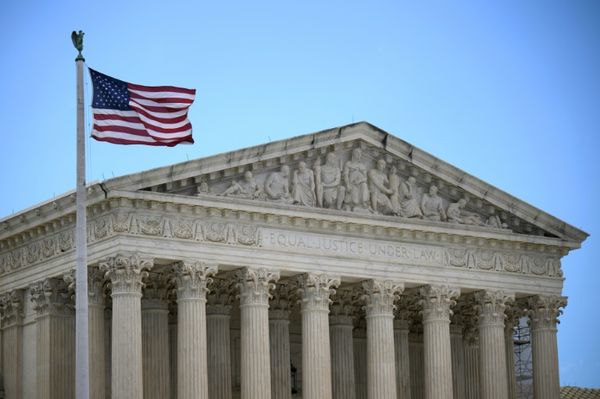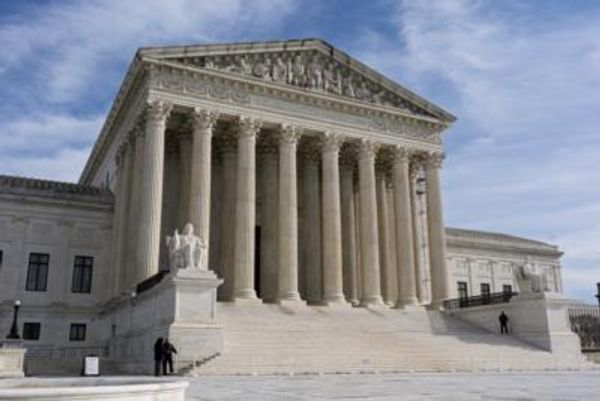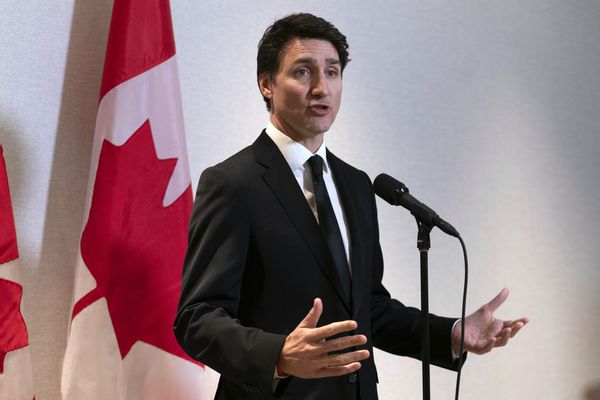
TEL AVIV, Israel—Lebanon will become the third Arab country in recent months to inaugurate public talks with Israel when representatives of the two sides meet this week to negotiate an agreement on a maritime border dispute.
The U.S.-mediated talks, to begin Wednesday in Lebanon’s border town of Naqoura, will focus on a 330-square-mile patch of the Mediterranean Sea where natural gas reserves are abundant and where each side has territorial claims. A resolution to the dispute could have a meaningful impact on the two neighbors, as well as the wider region.
Most critically, a deal would be a long-term boon for Lebanon’s battered economy. It would also strengthen a U.S.-backed Eastern Mediterranean energy alliance, of which Israel, which has already tapped gas fields in its own offshore waters, is a leading participant.
The talks are not expected to blossom into a normalization deal—the kind Israel reached with the United Arab Emirates and Bahrain last month. But they do represent another achievement for the Trump administration in its endeavor to improve Israel’s position in the region—at the expense of the Palestinians.
“This isn’t a negotiation for peace and normalization,” said Israeli Energy Minister Yuval Steinitz, in an interview with Israeli public television. The talks are strictly focused on demarcating each country’s exclusive economic zone “to allow for the exploitation of natural resources in the sea for the benefit of both peoples.”
A senior official in Israel’s Energy Ministry suggested that Lebanon could extract natural gas worth $6 billion annually from the disputed area, a thin, pizza slice-shaped tract of sea with its point at the Israel-Lebanon border. Without a deal, the disputed waters remain a point of angry rhetoric between the two sides and off-limits for commercial developers.
The United States had tried for years to bring the two countries to the bargaining table. The turning point appears to have been the August explosion of a depot that wrecked Beirut’s port, escalating Lebanon’s economic crisis and putting Hezbollah, a local power broker representing many of the country’s Shiite Muslims, on the defensive. Many in Lebanon have accused Hezbollah, which fought a war with Israel in 2006, of storing dangerous materials in the port.
The sense of despair deepened last month, after an initiative sponsored by France to form a new government failed to bear fruit. At the same time, U.S. sanctions recently went into effect targeting members of Amal, a Shiite Lebanese parliamentary party led by parliament speaker Nabih Berri that is politically allied with Hezbollah, increasing pressure on the Iran-backed organization. It was Berri who announced the agreement to hold the talks.
“Hezbollah is being cornered, even by its own allies,” said Nadim Koteich, a Lebanese political columnist and Sky News Arabic show host. “This is prompting Hezbollah to think out of the box and to say, ‘I still have cards to play, and one of them is having this border demarcation.’ … Hezbollah is trying to tell the Lebanese, ‘No, I’m not responsible for this economic meltdown.’”
When Israel withdrew its military from southern Lebanon in 2000, some 18 years after invading its northern neighbor to kick out the PLO, the United Nations traced out a land border.
One section on the eastern side of the border, a mountainous region known as Shebaa Farms, remains contested and an occasional flash point for Israel and Hezbollah. Since the two sides fought a monthlong war in 2006, Hezbollah has amassed an arsenal that includes tens of thousands of rockets. Israel has threatened to lay waste to Lebanon in case of a new outbreak of violence.
Despite the tension, there has been one channel of communication since the war to air complaints over the land border: Military officers from Israel and the Lebanese Armed Forces have held monthly meetings mediated by peacekeeping officials from the United Nations Interim Force in Lebanon.
The maritime dispute didn’t arise until several years after the war, with the countries disputing precisely what angle the border continues from the land into the sea.
Dan Shapiro, a former U.S. ambassador to Israel, said the United States has been promoting maritime border talks between the sides as far back as 2012, viewing it as low-hanging diplomatic fruit.
“This is a win-win, if you can get the deal. Both sides can do the exploration. Both sides can get the revenue that it would produce. How you split the baby is a technical matter and not really that difficult. The political hurdle was Hezbollah not being prepared to give its assent” to talks with Israel because of the de facto recognition that it would confer, he said.
Commentators say Hezbollah, which has attacked Emirati normalization with Israel as a selling out of the Arab cause, in recent days has been criticized by its political opponents in Lebanon for doing exactly the same thing.
The Lebanese delegation to the talks will be led by a brigadier general, and the Israeli delegation will be headed by the director-general of the Energy Ministry. U.S. Ambassador to Algeria John Desrocher will serve as the mediator.
“It’s quite significant: direct Israel-Lebanon talks, which Hezbollah agrees to. It’s a step that regulates the Israel-Hezbollah relationship,” said Ehud Eiran, a political scientist at Haifa University and an expert on maritime geopolitics in the Eastern Mediterranean.
“It is an achievement for the Trump administration. The U.S. has been mediating this issue for many years. We have an image of the U.S. departing the Middle East, but this is a deepening of American involvement. It’s a reminder that traditional diplomacy can still make a difference.”
Though the talks won’t address the main points of contention between Israel and Lebanon—the Shebaa Farms dispute, Hezbollah’s missile stockpile, and Israeli accusations that Hezbollah has violated U.N. Security Council resolutions by building covert weapons depots and military positions in southern Lebanon—reaching a deal over economic rights would open up an important resource that would serve as a counterweight to an escalation, according to analysts.
“The moment that the countries are tied together with such a major financial energy-related interest, then this can be a de-escalating, normalizing factor,” said Shimrit Meir, an Israeli columnist and expert on Arab affairs. She argued that an agreement on a maritime border would be a form of recognition of Israel.
On a regional scale, a deal removing the Israeli-Lebanese maritime dispute would strengthen a U.S.-backed geopolitical alliance of countries in the Eastern Mediterranean that aspires to link up their offshore fields in order to export the natural gas—a development that would put a check on the regional aspirations of both Turkey and Russia, said Sami Nader, the director of the Levant Institute for Strategic Affairs in Beirut.
“This is a key region for the Americans. They have a strategic interest in finalizing agreement on the maritime borders, all over the East Mediterranean. And the Americans have already established a kind of mini-NATO, an alliance of Israel, Italy, Egypt, Cyprus, and Greece.
“It’s not just about the gas. It’s about accessing a pipeline going from Israel to Greece to Europe. This would be the first pipeline from the East not under Russian control,” Nader said.
An Israeli energy official said on Wednesday that the border talks could be wrapped up within a matter of months.
However, analysts noted that it was still unclear whether Hezbollah would support a final agreement. While holding talks may put the brakes on new U.S. sanctions against Shiite allies and relieve French pressure, a successful deal might weaken Hezbollah’s influence within Lebanon by creating a source of revenue that it can’t control, said David Makovsky, a fellow at the Washington Institute for Near East Policy and a former U.S. peace negotiator.
“The question is whether Hezbollah is feeling the heat to conclude maritime negotiations or whether this is just a tactical move to merely embark upon them at this time,” he said.
“Culminating a deal could dilute Iran’s influence in what appears to many as a failing state. We hope for the best, but there is a reason why nobody is popping champagne corks. The politics are very treacherous. Nothing is easy in the Middle East.”







